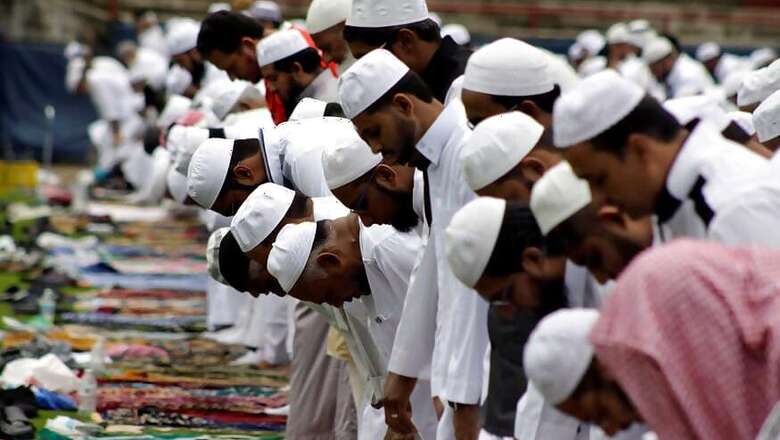
views
New Delhi: The Supreme Court will on Thursday decide if a Constitution Bench should revisit the issue of whether namaz can be offered anywhere, or whether a mosque is an essential part of Islam and is needed. The question has risen as part of the appeals in the Ramjanmabhoomi-Babri Masjid dispute.
A three-judge Bench of Chief Justice of India Dipak Misra and Justices Ashok Bhushan and S Abdul Nazeer, which is hearing appeals against the Allahabad High Court verdict of 2010, will decide the matter.
The apex court is hearing appeals against the Allahabad High Court verdict of 2010, which had ordered a three-way partition of the disputed land between Muslims, Hindus and Nirmohi Akhara (a Hindu group).
At the beginning of the case, CJI Misra had said that the appeals would be treated as purely a civil suit consisting of a land dispute and religion would not play any role in the verdict.
However, during the course of the hearings, Muslim appellants argued that a Constitution Bench should first rule on the importance of mosque in Islam.
Ismail Farooqui Case
A 1994 apex court judgment in Ismail Farooqui case had observed that “a mosque is not an essential part of the practice of the religion of Islam and namaz (prayer) by Muslims can be offered anywhere, even in open".
The Muslim appellants said that the observation has affected status of mosques in Islam and the question should be answered before the court goes into the main title dispute. Arguing for them, senior advocate Rajeev Dhavan told the court that “if congregation part of Islam is taken away, a large part of Islam goes worthless".
Allahabad High Court Judgment
In 2010, the Allahabad High Court had divided the land into three equal parts among three parties: Muslims, Hindus and Nirmohi Akhara (a Hindu group). This has since been challenged in the apex court. The Muslim parties in the case have argued that the verdict was unfair to them and the 1994 judgment was key in informing the 2010 division of the land into three parts.
Political significance
Thursday’s verdict will take on political significance because if the apex court does decide to revisit the issue, the hearing in the main title dispute would get delayed. This in turn would make it very unlikely for the BJP to keep their commitment of building a temple in Ayodhya ahead of the 2019 elections.
The 16th century Babri mosque was destroyed in 1992 after lakhs of karsewaks or right-wing volunteers had demanded that it be brought down, in order to erect a temple to Lord Ram, who they said, had been born right there. The issue has been politically fraught ever since.
The construction of the Ram temple was an important part of BJP’s manifesto ahead of the 2014 Lok Sabha elections and also the 2017 Uttar Pradesh Assembly elections – both of which it won.
In July, the Uttar Pradesh government had told the apex court that some Muslim groups were attempting to delay the hearing in the long-pending case, by seeking the reconsideration of the 1994 verdict observation that a mosque was not integral to Islam.




















Comments
0 comment